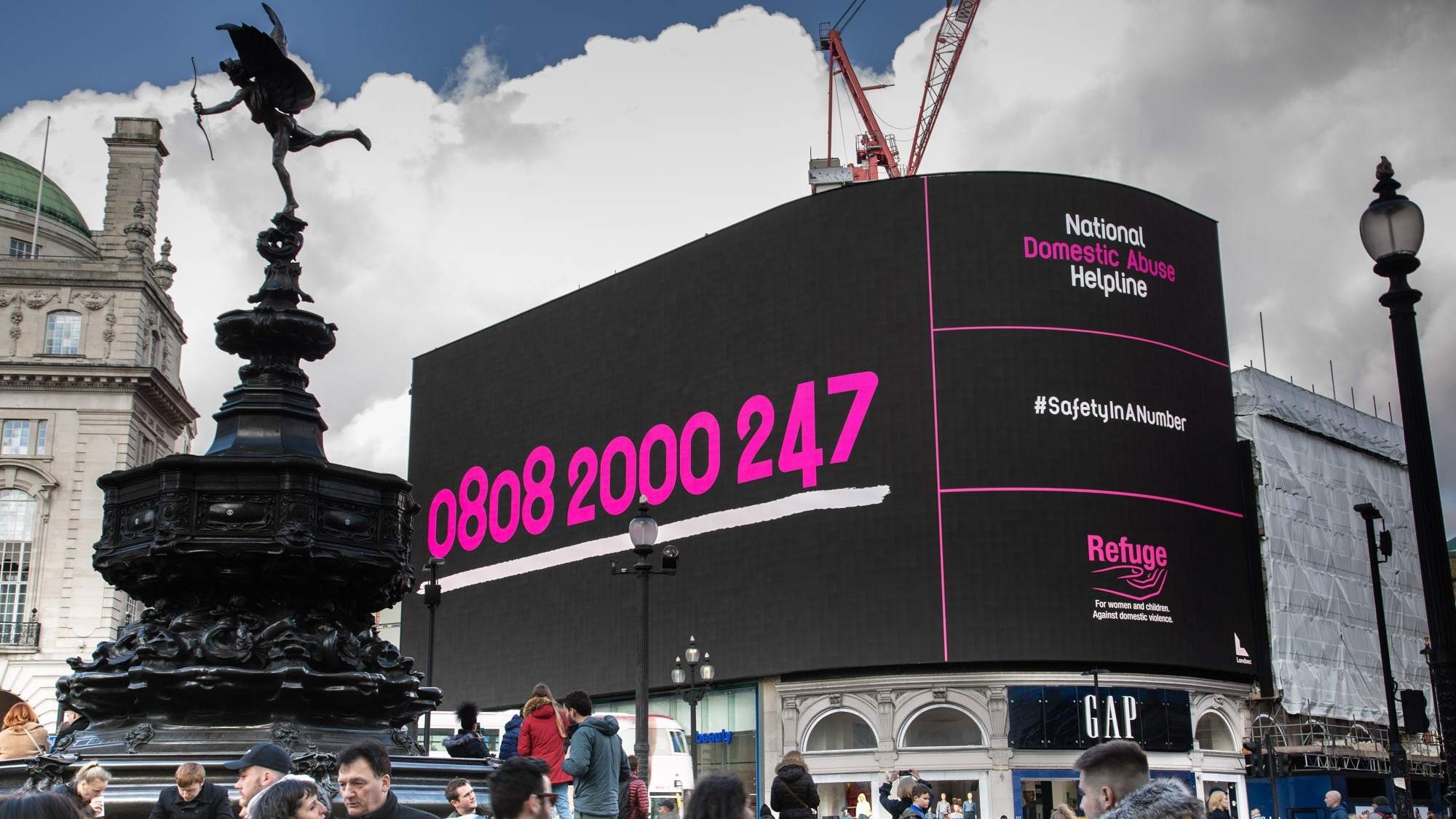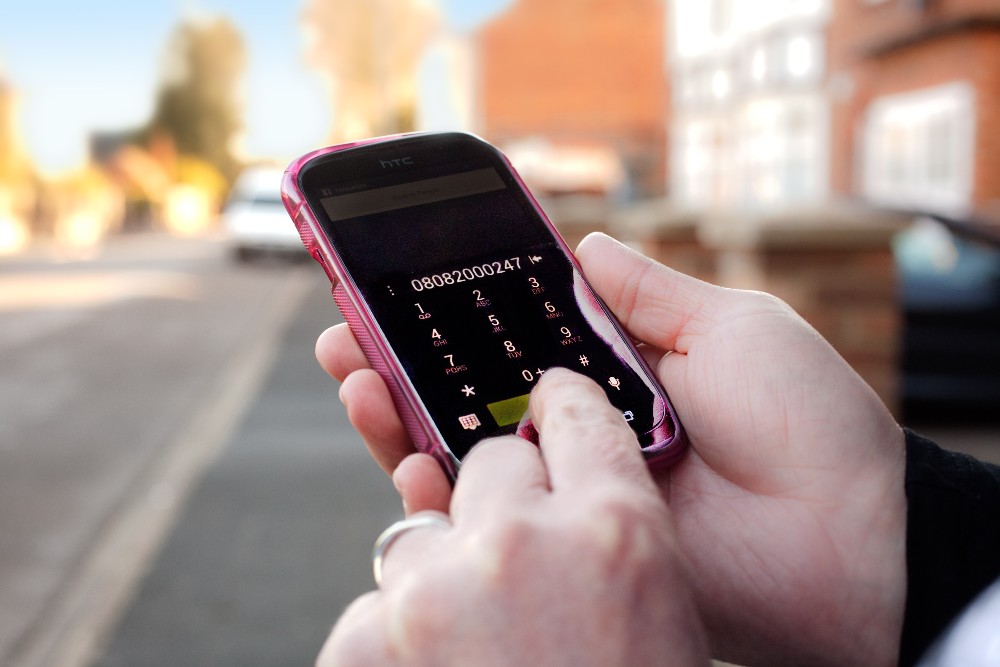"Many of us on the Refuge helpline are survivors ourselves. We know the strength it takes to make that first call"
To mark Volunteers’ Week (June 1 -7), Fiona*, 34, who volunteers on the Live Chat Helpline service, talks candidly about the reality of helping women through traumatic times to safety


To mark Volunteers’ Week (June 1 -7), Fiona*, 34, who volunteers on the Live Chat Helpline service, talks candidly about the reality of helping women through traumatic times to safety
I started volunteering on the Live Chat service of the National Domestic Abuse Helpline (NDAH) in January 2021. Feminism and activism are important to me - so becoming a Refuge volunteer was an easy choice for me to make. I'd recently returned to the UK after more than a decade of working abroad. I left the UK at 21, and started working in education, and gender-based violence with a focus on the gendered barriers women and girls experience. After working across three continents, I soon realised that while women's experiences across the world differ, domestic abuse is a global problem.
I was in a relationship with an abusive partner for around two years. I’m a longstanding intersectional feminist, and activist, with two master’s degrees and speak multiple languages. So why did it take me so long to understand and recognise that I was experiencing abuse?
We never tell survivors what to do
Coming back to the UK in 2020 I knew I wanted to put my knowledge and my experience to good use - so I signed up with Refuge as a volunteer. Refuge provided me with comprehensive training, although it was a steep learning curve. I felt supported, and around likeminded people. Being part of a diverse team of amazing and inspiring women working to keep domestic abuse service provision at the forefront of the national agenda is an honour that I get so much energy and satisfaction from.
On the Helpline phones and live chat, we never tell survivors what to do; often women who have found the courage to contact us have spent years being told what to do by their partners. Instead, we make sure women know their options. We provide survivors with the knowledge and support to empower them to make the right decisions for them. Many of us on the Refuge helpline are survivors ourselves. We know the strength it has taken to make that first contact.
It can be tricky to keep that personal distance when talking to a woman who is experiencing abuse. It’s difficult when hearing about the abuse survivors are suffering not to feel like you want to tell them to leave, but we never, ever do this. It isn’t what we are there for. We are there to ensure survivors are able to take back the power that has been withheld from them; to make sure they know all their options so they can make an informed decision about their future.
We understand the dynamics of abuse
During the COVID-19 pandemic, we knew that finding the right moment to make that first call become more difficult, many women found themselves unable to seek support in lockdown as they have been stuck in the same house as their abuser. At the start of lockdown, Refuge introduced a live chat service online, as well as offering a ‘call back’ service. Survivors can leave their details in a secure and confidential webform, and let us know a safe time to call them. The Helpline received a rise in calls and contacts of around 63% in the last year, so giving survivors more ways to make contact was so important.
Celebrity news, beauty, fashion advice, and fascinating features, delivered straight to your inbox!
We often hear from women who feel completely isolated, and feel that they can’t leave the house. We’ve had women who say, ‘I used to go out, I used to work in an office, I used to have people to talk to, but my husband doesn’t let me out anymore.’ That enforced isolation is common, and it seeps in gradually. The perpetrator subtly chips away at a woman’s self-esteem, willpower and energy.

At Refuge, we have a wide range of people who contact us. Some people just want to talk and offload their emotions, some need practical guidance filling in forms, sometimes we hear from people worried about their neighbours or family members. A lot of women contact us knowing something is wrong but aren’t sure what they are experiencing is abuse, which is why having someone listen to them who understands the dynamics of domestic abuse is so important. It validates their experience. It helps them to feel heard. For some women, this will be the first time they have told anyone about their experiences. It can be a defining moment for them in their journey to safety.
Volunteering is empowering
People often think it’s simple to “just leave a perpetrator”. They think once someone leaves their abuser everything will be fine, but there is much more to it than that; PTSD, trauma, financial and legal issues are sometimes ongoing. We talk to women who left their abusers years ago and are still healing but despite the hardships, I have never met a woman who regretted her decision to take her life back.
We speak to women who haven’t been asked how they are for a very long time, and for a lot of survivors the trauma never really goes away. The long-lasting impact of domestic abuse is still underestimated and often invisible.
I am so proud to volunteer for Refuge, and I love what I do. On a personal level it validates my own experiences of abuse. As a survivor it can be both healing and triggering. When I was experiencing domestic abuse, I would have found it so helpful for someone to name and call out the abuse I was going through. I’m so happy I’m able to be there for someone else in a similar situation, it feels like reconciliation with myself. Volunteering with Refuge is one of the best things I've ever done. It is empowering. Creating solidarity with survivors is something I love, being able to create awareness around domestic abuse feels like passing on a torch to other women, being able to pass on my experience and in turn support them.
Recently a caller said: "Thank you for saving me" and I broke down. I told her, "I haven’t saved you; you've done it yourself." But nonetheless, it’s amazing knowing the work we do at Refuge can both save and transform lives. Remember, you are not alone, Refuge is here for you.
* If you are affected by domestic abuse, you are not alone. You can access free and confidential support from Refuge’s 24-hour National Domestic Abuse Helpline on 0808 2000 247 and digital support via live chat Monday-Friday 3-10pm via www.nationaldahelpline.org.uk.
Maria Coole is a contributing editor on Marie Claire.
Hello Marie Claire readers – you have reached your daily destination. I really hope you’re enjoying our reads and I'm very interested to know what you shared, liked and didn’t like (gah, it happens) by emailing me at: maria.coole@freelance.ti-media.com
But if you fancy finding out who you’re venting to then let me tell you I’m the one on the team that remembers the Spice Girls the first time round. I confidently predicted they’d be a one-hit wonder in the pages of Bliss magazine where I was deputy editor through the second half of the 90s. Having soundly killed any career ambitions in music journalism I’ve managed to keep myself in glow-boosting moisturisers and theatre tickets with a centuries-spanning career in journalism.
Yes, predating t’internet, when 'I’ll fax you' was grunted down a phone with a cord attached to it; when Glastonbury was still accessible by casually going under or over a flimsy fence; when gatecrashing a Foo Fighters aftershow party was easy-peasy-lemon-squeezy and tapping Dave Grohl on the shoulder was... oh sorry I like to ramble.
Originally born and bred in that there Welsh seaside town kindly given a new lease of life by Gavin & Stacey, I started out as a junior writer for the Girl Guides and eventually earned enough Brownie points to move on and have a blast as deputy editor of Bliss, New Woman and editor of People newspaper magazine. I was on the launch team of Look in 2007 - where I stuck around as deputy editor and acting editor for almost ten years - shaping a magazine and website at the forefront of body positivity, mental wellbeing and empowering features. More recently, I’ve been Closer executive editor, assistant editor at the Financial Times’s How To Spend It (yes thanks, no probs with that life skill) and now I’m making my inner fangirl’s dream come true by working on this agenda-setting brand, the one that inspired me to become a journalist when Marie Claire launched back in 1988.
I’m a theatre addict, lover of Marvel franchises, most hard cheeses, all types of trees, half-price Itsu, cats, Dr Who, cherry tomatoes, Curly-Wurly, cats, blueberries, cats, boiled eggs, cats, maxi dresses, cats, Adidas shelltops, cats and their kittens. I’ve never knowingly operated any household white goods and once served Ripples as a main course. And finally, always remember what the late great Nora Ephron said, ‘Everything is copy.’
